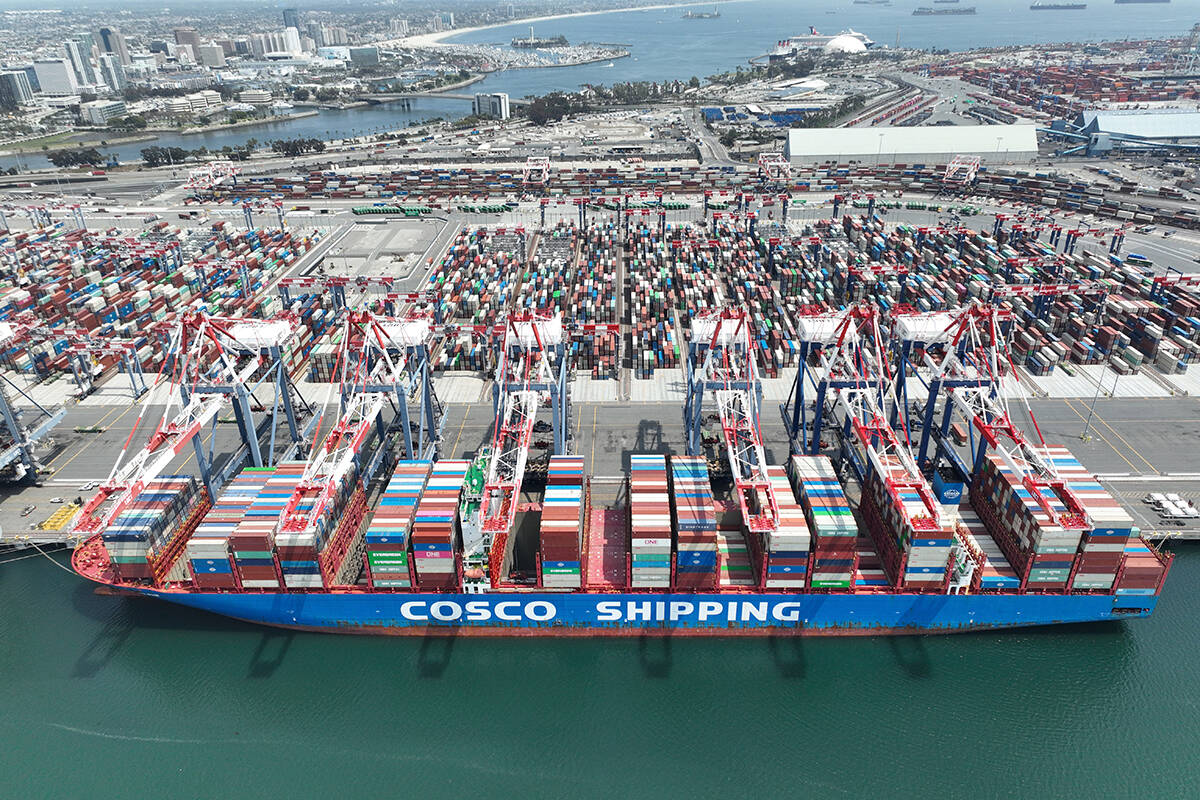It must be strange living the double life of a Monsanto official these days.
The grouchy giant of public opinion has caused a shift in the company’s corporate behaviour. The global backlash against agricultural biotechnology has seen Monsanto dumped by its corporate parent, some of its present products threatened and its future products under assault.
It leaves company officials in the position of believing in, being inspired by and celebrating the company’s biotech virility, while having to treat their products like a potentially toxic substance.
Read Also

U.S. softens fees on Chinese shipping
The U.S. starts charging new fees on Chinese ships on Oct. 14. What are the ramifications for their ag exports?
This was the position officials were in recently when agricultural journalists were invited to tour some of Monsanto’s Roundup Ready wheat, which is growing in tiny plots in secret locations across the Prairies.
“We have to show that we’re doing the right things, following the right steps,” said Monsanto Canada spokesperson Trish Jordan.
She admitted it is sometimes wearing to have to talk about the company’s innovations as if they could be dangerous.
“It’s unfortunate from some perspectives because it can send the wrong message to the public,” said Jordan.
“But maybe it’s the price we have to pay.”
The locations are secret for a reason. In Europe, protesters have sought and destroyed test plots of biotech crops. Canadian activists haven’t followed suit, and biotech crops are already grown on millions of acres across the country. But with the issue heating up, Monsanto is playing it safe.
If some of the seeds somehow got off of the field and into people’s hands there could be a panicked reaction, as happened when a few packages of sterile, biotech flax – CDC Triffid – were passed around by a researcher.
That’s another potential controversy Monsanto would like to avoid.
Here in this field grow a few rows of Roundup Ready wheat. It looks much like the rest of the wheat growing on farms across the Prairies. Monsanto officials take pains to fully describe how careful they are with these test plots to make sure none of the pollen or seed escapes into farmers’ wheat fields.
Most of the wheat plots are plowed down before the plants go into flower, so there is no chance of pollen drift.
The plants that are allowed to mature are carefully quarantined and disposed of by an industrial waste company, or buried in double wrapped bags deep in the ground.
While growing, the test plants are surrounded by a 30 metre crop-free zone plus a ring of canola or corn plants that would stop any pollen that managed to make it beyond the wheat patch.
At the start of this day, Jordan presented what she said was a “new pledge” from a “new company.”
She said Monsanto is committed to having a dialogue with the public about its products, that it would show respect for people’s views and concerns, that the company would be open about its plans, what it was doing and what it was discovering, and that it would share the benefits of its new products with farmers and society.
It’s a new approach that was laid out by Hendrik Verfaillie, the president and chief executive officer of Monsanto, soon after the company was cut loose from its corporate parent in 2000. It’s part of a speech that’s reprinted in an illustrated booklet the company gives out at media briefings.
In it, Verfaillie admits Monsanto caused a lot of its own troubles.
“We were blinded by our own enthusiasm,” he said.
“We missed the fact that this technology raises major issues for people, issues of ethics, of choice, of trust, even of democracy and globalization.”
So when it comes to introducing Roundup Ready wheat in the United States and Canada, Monsanto has reached out to farmers, the media and the public in an attempt to dispel its former aloof image.
Officials have toured the farm belt giving presentations to farmers. Company spokespeople quickly return reporters’ phone calls and speak openly of what the company is doing.
They are effusive about what they see as benefits of the “technology,” and reassuring about how they are ensuring this innovation is controlled.
Whether this change in approach will win over the public is yet to be seen.
But with Roundup Ready wheat heading quickly toward the marketplace, company officials are hoping it’s enough to stop anyone from ripping out the rails.
“If this is what it takes to move it ahead, then that’s what we have to do,” said Jordan.

















